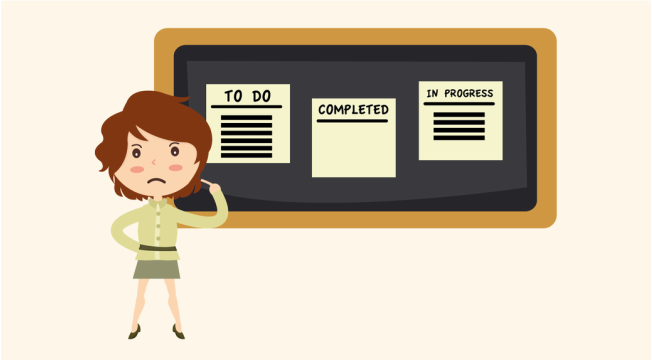|
As kids we were awesome at this, but for some reason as we grow, we stop asking… why? We stop questioning in place of doing. So before you DO anything else, let’s make sure you’re actually doing what matters… First up let’s start with the big question… why did you originally choose to start your own business? Was it for the prestige? The money? Did you want to share something great with the World? Or was lifestyle the primary reason? The freedom of being your own boss? More flexibility for family? Or perhaps you were disillusioned by your own employer and thought you could do it better? Whatever your reasons, are you still on track to achieving those goals? And even more importantly, do they remain true? When I start working with a new client I find they are often struggling with their business, not because they aren’t capable, but because their personal goals have become so misaligned with their business activities. This is particularly evident with entrepreneurs that either start a business to move away from something, feel it was the obvious next step, or have become reactive rather than proactive in their decision making, as a result of being bumped off track… perhaps it was the GFC, a relationship breakdown, an evolution of industry? Whatever the reason, they’ve found themselves fuelled by fear and are making decisions to avoid pain rather than moving toward a goal. “The key to success is to focus our conscious mind on things we desire not things we fear.” If you think your team, your customers and even suppliers don’t sense your fear or disillusion, you’re mistaken. They may not be able to articulate it, but they feel it.
So before you throw yourself into another day, take a few minutes to quickly assess where you’re at. Are you moving towards your goals, or away from disaster? Is your business still performing to achieve your personal goals? If not, why not? The switch required is often simple, you just need to identify it. In my business I’m always asked for actionable steps. Not just ideas, but a solid plan of action. So during the first half of this year I’ve decided to create a series of short articles designed to help you realign your business activities with your personal goals. And each article will contain a brief to do list. If you’re interested in this process, I’d really appreciate your input. As we progress, let me know what you need and how it’s working for you. And what results you are seeing? So where to start? Well here of course… Why ARE you in business? Grab a new business journal and start by answering these questions. Think about it. Understanding the why is a vital step in the process...
My next article will take a quick look at these responses and focus on where we go from here. Enjoy. David
0 Comments
I know many businesses over the coming weeks will be winding down operations and winding up end of year celebrations. But before you don your party gear and pop the champagne, you may like to take a look at some exciting new funding opportunities that have recently become available.
First up The Queensland Government has committed to provide $3 million in grant funding over the next 3 years to established Queensland-based small businesses to engage business mentors, coaches, or an advisory board, for 6 to 12 months. This is exciting news for businesses looking for help identifying and implementing high growth and/or employment opportunities. Perhaps you want to improve your management processes; operational systems; employ a larger team; enter new markets; or increase turnover and/or profit. Well these are all areas of growth the Government are looking to support you with financially. It's called the Accelerate Small Business Grants Program and it provides targeted assistance to small businesses that demonstrate high-growth and employment aspirations, to engage high-level expertise for their business... uhum... from a you know, professional and experienced business advisor :-). To be eligible for this grant, your business must have a minimum trading history of 4 years and a turnover of at least $750,000. There are a few additional criteria, but these are the biggies. For full details, here's a direct link to the Queensland Government website. Now if you're a new business, a smaller business, or you have different business goals, you may be interested in the Small Business Digital Grants Program? This Program provides small businesses with access to digital technologies and services to enable them to work smarter, engage with the global economy and make the most of online business opportunities arising from digital disruption. The digital technology or service must fall under one of 5 identified priority areas:
For this opportunity there is no tenure or turnover criteria. However Round 1 submissions are closing soon on 9 December 2016. If this is too soon, Round 2 will be opening in March 2017, so put it in your diary. For full details, here's a link to this grant on the Queensland Government website. Hopefully you'll have time before the holidays to submit your applications. I'll be here through December if you need any help. I am away for a few weeks in January, but I'll send details of that a little closer to the date. If I don't speak with you beforehand, have a wonderful and safe holiday break. Enjoy your time with family and friends. You deserve it! David This is undoubtedly one of the most brilliant brand campaigns ever launched and the hugely successful tag-line is as powerful today as it was when Nike introduced it almost 30 years ago (in 1988). It was a massive shift away from the company’s top of the pyramid style advertising strategy that had been previously adopted. The focus on elite athletes as inspiration had shifted to inspiring the everyday person with other everyday people, just doing it. Getting out there and moving their bodies without all the excuses. It was perfect and I could spend hours talking about the power of successful branding… but that’s for another article. What I really want to discuss here is the value this sentence brings to all businesses.
During my 20+ years in business, I’ve discovered it’s actually the key to your success. You can be the smartest guy in the room, the best funded or the most charismatic… but it means jack if your business fails to deliver. Too many business leaders miss this. The business looks great, invests in professional sales tools, a marketing plan and receives plenty of enquiries. But they forget about the basics of delivering what's required for the business they've chosen to be in. They pat themselves on the back and start the process again. They forget delivery. Now the chase is important. You need a well considered, consistent brand, a strong marketing approach and professional presentation. But you also need clear sales and operational processes to make sure the business delivers on its promises and absolutely delights its customers. Attracting the customer simply isn't enough. You need to romance them a little. I’ve been noticing recently just how many businesses fail to deliver and then complain about the market, competitor pricing, a lack of resources…or whatever else they consider to be the reason for their poor performance. Yet the answer is often far simpler... poor business performance is almost always linked to poor business performance. You just haven’t shown up. You haven’t cared enough about the customer and been too focused on yourself. Here’s a few examples of what I'm talking about…
Once you’ve found a potential customer, make sure your systems work to secure them and then work to keep them for life… or if your business is geared toward the one-off purchase, focus on referrals. It's really that simple. Start with the delivery basics and build from there. When you’ve nailed the basics, start adding extras that will seriously impress. And watch your business grow. Seriously. Just do it. David Albert E N Gray delivered a speech to the National Association of Life Underwriters in 1940. It remains to this day, one of the simplest and truest success strategies ever presented.
Gray’s speech has been widely referenced and hugely popular since its delivery, yet business leaders continue to look for the secret to success? Well the good news is you can stop looking. It’s here. And it couldn't be simpler. I’ve summarised what I believe to be the essence of Gray’s speech below and included a link to his original for those of you interested in reading a little more. What is the common denominator of success? Successful people make a habit of doing what failures don’t like to do. No excuses, no delays, no options. They just do it. They don’t always like it, but they always do it. Successful people aren’t necessarily the smartest or the best in their field. They’re the most diligent. How do I stay on track? Successful people have clarity of purpose. When your goals are realistic, achievable and crystal clear you’ll have a much greater opportunity of success. Your focus shifts from the process to the result. If you don't have a clear purpose, you'll avoid doing what needs to be done for more immediate gratification (or less discomfort). There's not a strong enough reason for you to remain focused on the longer term. This links back to an article I wrote on successful goal setting. Take a look if you’d like a very simple and effective approach to identifying clear goals. Once you’ve clearly defined your purpose and set measurable and meaningful goals, it’s time to develop an action plan and that’s where your habits kick in. If you need to change a few existing habits, start small. Implement one new habit then move on to the next. It’s simple, but like all good things, not always easy. And remember we all have habits whether we consciously create them or not. So take the lead and create a plan. If you don’t, your subconscious mind will do it anyway and the results may be less than appealing. Plus take a look at what’s slowing you down. Sometimes creating a new habit around doing less of something could be as beneficial as doing more of something else. Then finally, just get on with it. Resolving to do something is the first step, but doing it is the only thing that will make a difference. Doing = Change. There's no way around it. So what are you waiting for? Need help with creating new habits? Or accountability to keeping them? I’m always here to help. Enjoy. David PS Here's a link to Albert E N Gray's The Common Denominator of Success speech. It’s a popular topic of conversation, but what does it really mean? Work is part of life, not it's enemy. So rather than propagate this unwinnable battle, perhaps we could consider a different approach... "There's no such thing as work-life balance. There are work-life choices, and you make them, and they have consequences." Creating balance in life is actually all about choice. And it’s highly personal. You’ll never get agreement from a room full of people on what defines a balanced life. And that’s ok. We’re all wonderfully unique and the feeling of satisfaction is also personally unique. So first up, stop worrying about how others define this mythical creature and focus on creating a definition that matters to you.
Caryn Seidman Becker suggested in an article on this subject a few years back, that you can have it all, but you can’t have everything. You need to define what it is that YOU want from this life and then go get it. As a mum and CEO, her priorities at that time were family and her growing business. Yet she also made the choice not to delineate between the two. This'll work for some, but not for others. Some people need to be fully immersed in the moment to feel satisfied with the outcome. Others can juggle and love it. It doesn’t matter your approach, there’ll still be moments of guilt, plus you’ll sometimes mess up. Just remain focused on the bigger picture. What’s your ultimate goal when it comes to enjoying this brief life to it’s fullest? And how are you going to achieve it? Identifying Your All Here’s a potentially life changing exercise that could take just a few minutes of your time. I’m sure though once you start, you’ll want to give it a little more.
Note: If it’s a future goal, you’ll also need to define what actionable steps are required to get you there and include a date for each. If it’s an immediate change, the date to start is today! Once you get a hint of overwhelm with your commitments, stop. The rest can wait. Focus on your top priorities first and put the rest in a drawer for a later date. I mentioned earlier that your choices will have consequences. These lower priorities are your consequences. They may still creep in to your day-to-day but they won’t be your primary focus. You may find this a little frustrating, but committing to too much upfront is the fastest way to failure. Work life balance may be an illusion, but creating the life you want is not. It really is your choice. And if you feel you haven’t quite got this balance right yet, then do this exercise today. I’ll even send you a template to get you started… just let me know if you need it and I’ll email it through. Have fun with this. It’s a game changer. David There is nothing permanent except change. We all know this to be true. We live in a fast paced society that demands change. We want faster, better, easier. And we know that in business change is paramount to success. It's a given that if we don’t continue to evolve, we’ll be left behind. So then why as individuals are we so naturally resistant to change? And why can the implementation of a change management process create more issues than it resolves? Surely a well considered plan, comprehensive team training and clear expectations are all that’s required? Not even close and here’s why… Humans are involved. Project management is a well designed plan, developed and delivered according to timelines and budget constraints. Change management however is all about making sure your project is embraced, adopted and effectively implemented. It’s not that humans are totally irrational beings. It’s just that change is new, it’s unknown and until it’s realised, it relies heavily on the personal perspective of the individual. My Top 8 - why employees resist change
If you address all of these issues in your change management plan, will it be smooth sailing? Probably not. No matter how well designed your plan is, how prepared you are prior to implementing your change process, not everyone will welcome it with open arms. Often those individuals most affected by the change (even a personally positive one) can be the most resistant. Each individual responds differently to change. Some will accept quickly, some will accept reluctantly adopting a wait and see attitude and others will resist vocally or by non compliance. This brings me to a very important point. Just because your team doesn’t voice an objection, doesn’t mean it doesn’t exist. For many reasons team members may not voice an objection to change, but they'll object by non compliance. Or worse, start a movement. This type of objection can be a real issue as it’s often difficult to identify, can cause unnecessary delays and internal unrest. Why is vocal resistance important to the process? Too often business leaders perceive vocal resistance to change as negative. However, employee resistance can play a positive and useful role in organisational change. Team members willing to discuss their concerns in a professional manner should be encouraged as they help move the process forward and give a voice to others. It's likely to ignite debate, produce a better understanding of the proposed change and hopefully contribute toward a more successful plan. All sources of resistance to change need to be acknowledged and people’s emotions validated. Resistance to change will continue, sometimes escalating, until employees are able to recognise the benefits and perceive those gains to be more valuable than the apparent risk. Organisations don’t change, people do. So first the people involved must accept the change. Implementation of a new process or project is the easy part as it’s external to the individuals that perform it. To maintain engagement and consider the individuals needs, here's what I consider to be the most important aspects of any change management process. My top 8 - how to successfully implement change in your business
This may seem like an extensive list. It's not. Plus the more you do it, the better you'll get. And yes, it's important to plan and prepare, but don't let it get in the way of progress. At some point you'll need to stop planning and get started. You've no doubt considered why you're making these changes and there'll be no benefit in ongoing delays. Planning for zero resistance is a waste of time and you're setting yourself up for failure. Similar to any other business plan, you'll need to make adjustments along the way. And remember that if the change requirements of your business are substantial or potentially complex, an external consultant can offer tremendous support with prioritisation and implementation. Here are a few key areas of a change management plan that may benefit from external support...
If you want business growth, you can't hide from organisational change. Embrace it. Commit to a well considered process and reap the rewards sooner. *Team member changes can be an important part of organisational change and I'll address this touchy topic in future articles. But if you're currently faced with this issue and would like help navigating through it, let me know. I have plenty of experience having implemented highly successful organisational change within such companies as Telstra, Pacific Brands, Riviera and MAK Water. If you liked this article and think someone else may also enjoy it, please share. Or if you'd like to leave a comment below, we'd love to hear from you.
Late last year I wrote an article on the key factors that determine the value of your business. We covered aspects that would be fairly obvious to those outside of your organisation, such as potential investors and customers - industry growth, innovation, brand, revenue and your team. But one indisputable ingredient vital to the success of any business may in fact be somewhat invisible to most. And it’s all in your head. CEO psychology is a seriously important factor that will impact your health and your bottom line. What you tell yourself every day matters. It sets the tone for everything else that follows. Business leaders are often seen as the tough guys of business and mental health isn’t commonly discussed. But there are many reasons leaders need to tune in and learn to control their thoughts… 1. Shit Happens Things go wrong. You have competitors, customers, employees, expenses, fluctuating markets. You’re always dealing with issues. If you manage a team of a few, you may find this manageable. But if you manage an organisation of hundreds, or thousands of people, it could be a constant in your daily life. Once your company gets to a certain size, your team will do stupid things. You'll be amazed. And to rub salt into the wound, it’s your fault. Yet how you respond matters. Many leaders take things too personally, while others don’t take them personally enough. Finding that balance is important. You need to take responsibility for the situation, but not link it to your self worth. You need to think rationally and develop a solution that fixes the problem. It may be team education, a new process, a customer apology. It can be difficult but it's almost always recoverable with the right attitude. 2. It’s a Rollercoaster Ride Talk about high’s and low’s. One day you’re flying. You’ve secured your biggest contract ever and it’s set to be hugely profitable. The next day a key supplier apologises they won’t be able to deliver a component on time, maybe ever. And your senior project manager hands in her notice. The high’s are easy to deal with. You celebrate them and move on. The low’s are different. You dwell on them, often. 3. It’s Lonely at the Top Ultimately it’s your neck on the chopping block. You may have support from a board, but the success or failure of any decision will be yours and yours alone. And when you ask for an opinion from friends or colleagues they may not be able to provide a fully considered response, simply because they don't have all the information. You are generally the only person that knows enough to make the call. This can be exciting, but it's also stressful and needs to be managed. 4. The Rewards Can Be Huge The good news is, you’re the conductor of this orchestra and have the opportunity to make it brilliant. With all that responsibility comes the potential of massive reward, both personal and financial. So if you look after your mental health and realise that when you are calm, centred and rational in your decision making, the business will reflect that attitude and things will really start to flow. So what can you do to help yourself? 7 STEPS TO MENTAL CLARITY There are a few techniques that I’ve applied with clients and myself over the years. Let me preface this by saying that I appreciate we're all different. We respond differently to stressful situations and may naturally be more or less emotionally fuelled by certain events or attitudes. So the following is simply a list of ideas that I've found helpful. Maybe they'll work for you too... 1. Find a Friend This is not to have someone else make the tough decisions for you, but to spend time with others who have faced or are facing similar circumstances. If you're not quite ready to work one-on-one with your own business advisor, networking groups can be highly beneficial... especially if they consist of business leaders in similar sized organisations within non competitive industries. The non competitive nature makes it easier to discuss matters openly and you’ll be surprised how many of these issues are universal. Be vulnerable (but try not to cry). You’ll learn much faster. Your partner can also be a great sounding board for some things, just not everything. A networking group helps you share the load. 2. Write It Down This is one you've no doubt heard many times, but it's still often ignored. Get it out of your head and onto paper. Everything seems bigger in your own mind. Write down your ideas, your concerns and then tackle each one individually. Develop a process for evaluating the validity of new ideas and a similar process for addressing issues. Then implement. Your new networking group, or a business advisor can be a great resource for creating these types of processes. For example a simple worst case scenario exercise can be extremely helpful. It'll help you assess the probability of a certain outcome as well as identify a possible solution. Then once you’re done with that list, write another list. Everything you’re grateful for. You'll soon realise most of our problems are embarrassingly first world. 3. Start Something After you’ve written it all down, get started on something and really throw yourself into it. Achievement kicks fear (presenting as stress) in the butt. 4. Focus on the Road not the Wall During an interview with SUCCESS magazine, the legendary F1 driver, Mario Andretti was asked for his number one tip for success in race car driving. He said, “Don’t look at the wall. Your car goes where your eyes go.” So stick to your plan, ignore the haters, stop worrying about what you’re trying to avoid and focus on the road ahead. And if you really can’t get your head straight on any particular day, go home. Get out of everyone else's way and recharge. Leaving a problem behind can be the fastest way to realise its solution. 5. Have a Vice Identify what drives you - away from work. It may be exercise, drawing, volunteering, even video games. Top up your dopamine levels with a healthy, safe vice and do it regularly. It can be cheaper and more therapeutic than traditional therapy. 6. Customers Over Competitors Be aware, but not obsessive about your competitors. This links to the concept of focusing on the road not the wall. Spending too much time thinking about your competitors will run you into the ground. Instead, focus on your customers. Email, call, ask questions, find out what they want, how you can make it better. You'll get some great ideas and be inspired by positive feedback. It's all good. 7. Be Inspired and Laugh More Go to Youtube or find a podcast that you find highly inspirational. Then watch or listen a little each morning. It'll have a hugely positive impact on your day. And in your downtime watch some good comedy. Laughing more helps put everything in perspective. Plus at a physical level, it's been shown to reduce stress hormones such as cortisol and epinephrine, while releasing 'feel good' endorphins. Laughter also boosts the number of antibody-producing cells and enhances the effectiveness of T-cells, leading to a stronger immune system. There is little success where there is little laughter. If you liked this article and know someone else who would also enjoy it, please share. Or if you'd like to leave a comment below, we'd love to hear from you. And if you are located in SEQ and interested in joining a business leaders network, get in touch. We have a few great ideas brewing. The best way to answer this question is to take a look at the past. How's your success rate with resolutions from previous years? If the answer is great, then grab that pen and paper and start making that list. If however you're like the rest of us, your time may be better spent elsewhere. Why Don't Resolutions Work? 1. They're generally not your highest priority. Resolutions are too frequently an ideal. Something you think you should do, but subconsciously (or even consciously) don't believe the payoff will be worth the effort. 2. They often aren't something to look forward to because they rely on disciplinary change... and it all starts in the holidays. Talk about making it tough on yourself! 3. There's no action plan for making them stick. No plan and no genuine consequences if they aren't implemented. 4. There's an expectation of failure. Most resolutions have been forgotten before the party's over. So there's an expectation that if you don't follow through, that's ok. Most people don't. A Much Better Idea... Rather than create resolutions, this time of year can be ideal to reflect on the success of your business. Review the last 12 months. Take a look at your goals and where you're at right now. Is there a gap? If you've fallen short somewhere, identify why? What's holding you back? Then create a plan to get you back on track. It may be a skills gap in the business, a customer service or delivery issue, even a product or process that needs tweaking. It doesn't matter what it is, look to fix it now. Don't wait for the New Year to begin. Why wait until Jan 1 to implement something worthwhile? If you're not in a retail environment, chances are that late Dec is the ideal time for future planning. By all means enjoy time with family and friends, but also use your work time wisely and get a head start on the year ahead. I'm around in the lead up to Christmas if you need any support. Then I'll be away until Jan 4. So if you need anything, please get in touch within the next week. Otherwise stay safe and enjoy your well earned break. Happy holidays! PS You may find my post on goal setting useful for your business review + planning session. To learn more about David Lumb visit betterbusinesstoday.com.au
We know it's a good idea, but we don't always do it. Or we do a little bit... like set the goal, then keep doing the same things we've always done. And that's where we fall down. But why? Well it links back to my last article. We sideline the things that don't offer immediate gratification in place of those that do... something urgent, something we're good at, or something we want to experience and enjoy right now. Or we simply don't see the real benefit as a result of past experiences. We may have explored the 'what' with goal setting, but not the 'why' or the 'how'. Setting a goal and having a clear focus is a great first step, but it's akin to a vision board. I'm not against vision boards and I know some people love them, but when it comes to your business, I'm not sure that relying on the laws of attraction is your best bet. Don't get me wrong, having a vision is important. Clearly defined goals are important. All I'm saying is, let's have a plan to get there. “Vision without action is a dream. Action without vision is simply passing the time. Action with Vision is making a positive difference.” - Joel Barker Having a plan will provide a more direct path, greater motivation and a sense of achievement along the way. It also allows you to engage others with the goal. It provides you (and your team) with a roadmap. And when some of the tasks required to achieve that goal aren't all that enjoyable, a connection with the bigger picture (as well as the celebration of milestones) will help you maintain motivation and enjoy the process so much more. Plus achieving a goal is a fleeting moment in time, usually replaced with the next goal. So don't set yourself up for a single moment of satisfaction. Enjoy the adventure. 7 steps to successful goal setting...
A few important notes on goal setting...
So if you need accountability, get in touch. Or perhaps you'd like help creating your plan? We have a number of support programs available to suit your individual needs. And if you're not sure you can afford the time right now, you may be interested in a recent post... Procrastination... it's not your fault! To learn more about David Lumb visit betterbusinesstoday.com.au
Are you a procrastinator? Especially on the business building tasks that will make a huge difference to your own focus and productivity, the culture of your organisation, the direction of your business, even the motivation and results achieved by your team? For example, clearly defining your company's values, its mission, identifying measurable business goals, creating a tactical plan to achieve those goals, sharing it with the team and then taking action. It's necessary for any business right? So why don't we do it? Instead we too often delay these vital steps altogether and throw ourselves into the action, the operational day-to-day. This is a dilemma for business leaders that seems to be getting worse, not better. But why? Well it seems to be the result of increasing external stimulus and impulse control... not so much about willpower as you may have thought. That doesn't mean we have no control over it. It just means we need to recognise it and take action to avoid it. You need to avoid procrastination! On a recent plane trip I listened to a brilliant interview. Brian Johnson discussing with Piers Steel his book, The Procrastination Equation. Here's my take on the key points discussed... First let's take a quick look at our anatomy. We have a very well established and dominant area of the brain called the limbic system. It's automatic and emotional. It tells us to remove our hand from a hot stove. It also tells us to feel joy, sadness, frustration and excitement as a result of external stimulus. Then we have the prefrontal cortex. It allows us to process information and make decisions. It's unfortunately not automatic, but it's part of what makes us uniquely human. It's rational and allows us to make plans for the future. So setting a goal to implement a business planning session later in the week, or even exercise on the weekend is easy, we use our rational prefrontal cortex to make that decision... too easy. But once that day arrives, the limbic system gets involved and it really prefers immediate gratification. It says, whoa, wait a minute... I know this is important, but what about your email? You haven't looked at any messages this morning. What if there's something urgent to address? Or what about the family? It's been so hectic lately. Maybe we should all go out to breakfast and spend some quality time together? And before you know it, your well meaning plans of business development or health and wellness have been sidelined for another day. Here's Pier' equation for decision making... Motivation = Expectancy x Value / Impulsiveness x Delay Motivation is obviously key. If we're really motivated, we're less likely to procrastinate. To determine your own level of motivation, take a look at whether you really expect to achieve your goal (expectancy). Then consider if the goal will be seriously rewarding (value). Then look at the denominator of the equation. Impulsiveness represents your sensitivity to a delay in gratification. If you are more impulsive, you'll generally need gratification to be fairly immediate to make the goal valuable. And if the reward of any goal is just too far away, it's easy to feel less motivated about taking action, regardless of your level of impulsiveness. So if you're like most business leaders... easily distracted by a new product idea, a more exciting project, procrastination could be an issue for you. The good news is the solution is fairly simple (but not always easy). First you'll need to analyse your goals (if you have them clearly defined... if not, we'll get to that next). Are they believable? Do they offer you real rewards? Are those rewards immediate enough? If it's a resounding yes to all of these questions, you just need to develop a plan of attack, implement and eliminate distractions along the way. We live in a busy world where big business spend a small fortune trying to attract our attention. It can be tricky to stay on task, but it can also take as much as 15 minutes to refocus on a task after being distracted. So if you're checking email regularly, you'll be less productive. If you're multi-tasking (really task-switching), you'll be less productive. Remove the stimulus responses (like email beeps) to eliminate the need for willpower and you could save a ridiculous amount of time and reach your goals sooner. It's actually the convenience of modern technology that's creating the problem and making us feel as though we can't get enough done. We just need to stop doing it all... simultaneously! There's a link at the end of this article to a great productivity tool called Saent. It may be exactly what you need to get started. Now you know what causes procrastination and how to address it. If you've procrastinated so much that you don't yet have clearly defined business goals, I'll cover a very simple goal setting strategy in an upcoming post. And if you need help defining your goals and creating actionable tasks to achieve them, get in touch. Having someone to guide you and then keep you accountable can be a great motivator. To learn more about David Lumb visit betterbusinesstoday.com.au
To listen to the interview with Brian Johnson and Piers Steel visit iTunes To learn more about Piers and his theory visit procrastinus.com To stop the distractions take a look at saentproductivity.com |
Join up to receive David's tips for business leaders direct to your inbox. You can always unsubscribe with one click. And we'll never share your details with others... ever.
AuthorBetter Business Today was created to help business leaders navigate their market place and improve business performance (or the lifestyle it offers), without the guesswork. Simple steps, actionable advice and fast results. Archives
February 2017
Categories |
|












